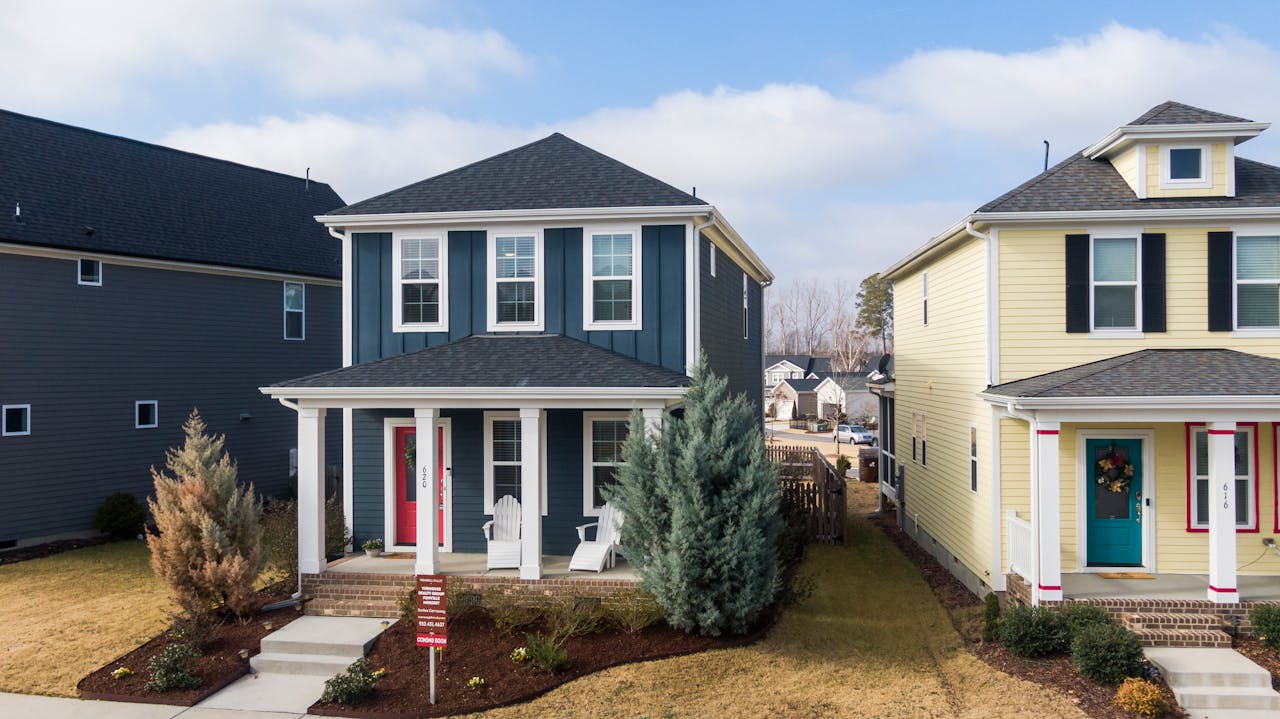The decision to purchase a second home is often one that requires careful consideration. After all, it’s not simply a case of finding a property you love; it’s also about ensuring that you have the financial means to cover the costs. One of the key factors to consider is the type of mortgage you will use to buy the property. For many, a fixed-rate mortgage presents an attractive option. It provides the certainty of a set monthly payment over a specific period. Nonetheless, as attractive as this mortgage type may seem, it’s essential to evaluate its suitability thoroughly before you commit. This article serves as a guide, helping you navigate the process of assessing if a fixed-rate mortgage is the right fit for your second home purchase in the UK.
Understanding Fixed-Rate Mortgages
Before delving into evaluating the suitability of fixed-rate mortgages, it is crucial to understand what they are and how they work. Fixed-rate mortgages are home loans with interest rates that remain constant throughout the term of the loan. This means that, irrespective of changes in the broader economy, the interest you pay on your mortgage will not fluctuate. As a result, your monthly payments remain the same, which can be a significant advantage for budgeting.
Sujet a lire : What Are the Key Considerations When Choosing Between Interest-Only and Repayment Mortgages for an Investment Property?
One of the critical points to remember with a fixed-rate mortgage is that these loans often carry slightly higher interest rates than their variable counterparts. This premium is essentially the price you pay for the certainty and stability that comes with a fixed-rate.
Evaluating Your Financial Situation
Deciding on the right mortgage begins with an honest evaluation of your financial situation. You need to account for your current income, your credit status, your savings and investments, and your current home’s equity, among other factors.
Sujet a lire : What Legal Documentation is Required for Altering the Use of a Property from Residential to Commercial?
Remember that buying a second home is not the same as buying your first. Your income will need to be sufficient to handle two mortgages, unless you plan to remortgage your first home to free up some equity. Lenders will look closely at your debt-to-income ratio, a key indicator of your ability to manage your current debts and take on new ones.
Your credit score is also of paramount importance. A good credit score gives you access to favourable interest rates and terms, while a poor score could limit your options or make mortgages more expensive. If your credit score isn’t in the best shape, you might want to consider improving it before diving into the second home market.
Considering the Property Market Conditions
The condition of both the national and local property markets can significantly influence your mortgage decision. For instance, if the property market is volatile and interest rates are expected to rise, a fixed-rate mortgage could be an excellent choice to lock in a current low rate. However, if rates are high or predicted to fall, it might be better to hold off on choosing a fixed-rate mortgage.
Check out the current rates offered by various lenders and compare them with historical trends. A mortgage broker can be a valuable resource here, helping you to interpret the data and make an informed choice.
Understanding the Implication of Stamp Duty
In the UK, when you buy a second home, you need to consider the additional stamp duty costs. Stamp duty is a tax you pay when buying a property above a certain value. From April 1, 2016, an additional 3% stamp duty charge has been applied to second home purchases in the UK. This means that you’ll pay considerably more in stamp duty than you did for your first home. You need to factor this into your budget when considering your mortgage options.
Assessing Different Lenders and Loan Options
Not all fixed-rate mortgages are created equal. Different lenders offer different terms and conditions, and it’s essential to shop around before making your decision.
Look at the rates, loan term, fees, and the flexibility offered by various lenders. Some lenders may offer loans with a low-interest rate but high fees, or a longer-term but less flexibility. The best mortgage for you will depend on what you value most: certainty, low rates, or adaptability.
In conclusion, purchasing a second home is a significant commitment. By thoroughly evaluating the suitability of a fixed-rate mortgage and considering your financial situation, the property market conditions, stamp duty implications, and different loan options, you can make an informed decision.
The Role of a Mortgage Broker in Purchasing a Second Home
A mortgage broker can be an invaluable asset when purchasing a second home, especially when evaluating the suitability of a fixed-rate mortgage. Brokers have an in-depth understanding of the housing market, offer access to a vast network of lenders, and are well-versed in dealing with second home mortgages.
While you can approach lenders directly, a mortgage broker can save you time by comparing a wide range of mortgages on your behalf. They can also provide advice tailored to your circumstances and help you understand the intricacies of fixed-rate mortgages.
Brokers can offer invaluable insights into the differences between lenders and their products. They can break down complex financial jargon and help you understand the terms and conditions, fees, charges, and potential penalties associated with different loan options.
They can also guide you through the application process and help you present a compelling case to lenders, particularly if your financial situation is complex or you have a poor credit score. Remember, lenders will critically assess your ability to afford a second charge mortgage, and a mortgage broker can help you prove your case.
The Significance of a Fixed-Rate Mortgage in Buying Second Homes as Holiday Homes
If you’re planning to buy a second property as a holiday home, a fixed-rate mortgage could be a wise choice. A holiday home can be a significant financial commitment, and a fixed-rate mortgage offers the predictability of regular, set payments, which allows you to budget more effectively.
However, it’s essential to remember that when you’re not occupying your holiday home, it might not generate income unless you rent it out. If you plan to let your holiday home, this income can help you meet your mortgage payments. But you should not rely entirely on rental income, as there may be periods when the property is not let.
Be aware that not all lenders offer mortgages for holiday homes and those that do may impose certain conditions. For instance, some lenders may stipulate that the property must be available for your use for a certain number of days per year. Others may require that the property is not let out on a long-term basis.
Therefore, when considering a fixed-rate mortgage for a second home intended as a holiday home, it’s essential to clarify these points with lenders or through a mortgage broker.
Conclusion
In conclusion, purchasing a second home in the UK, whether as an investment, a holiday home, or for any other reason, requires careful consideration. A fixed-rate mortgage can offer the security of steady, predictable monthly payments, which can be beneficial when budgeting for a second property.
However, it’s crucial to evaluate your financial situation, understand the implications of stamp duty, consider the property market conditions, and explore different loan options before making a decision.
The role of a mortgage broker can be invaluable in guiding you through this complex process. By seeking advice and thoroughly considering all factors, you can ensure that a fixed-rate mortgage is the right choice for your second home purchase.











